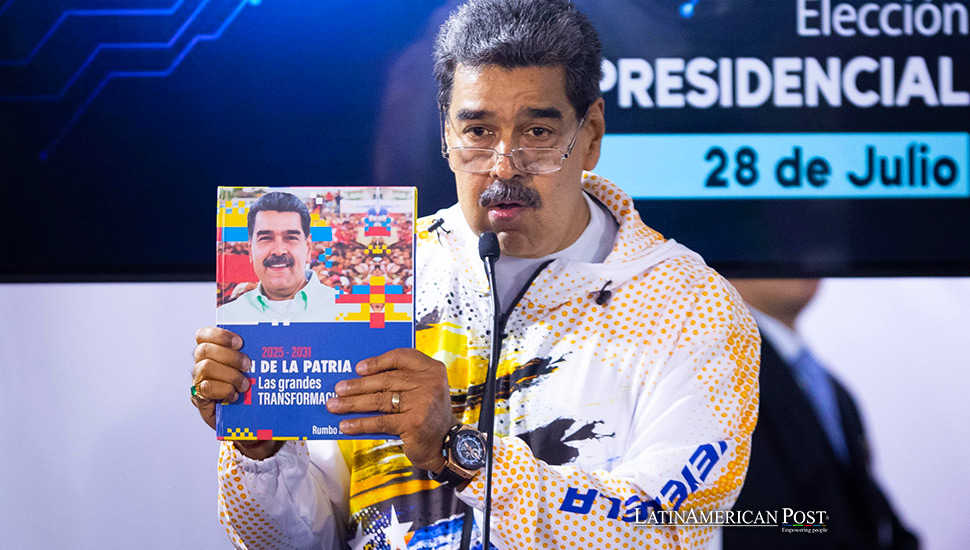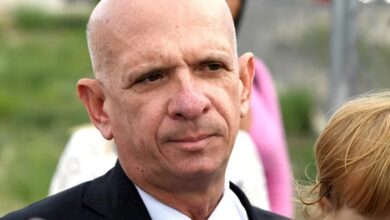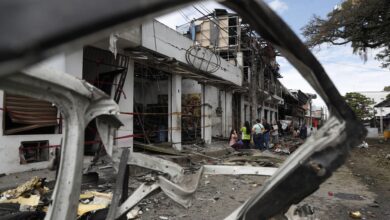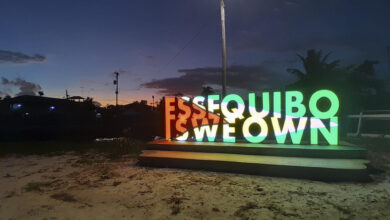Venezuela’s Electoral Saga Escalates as Maduro Seeks Third Term

In Venezuela, President Nicolás Maduro’s quest for a third term contrasts starkly with opposition efforts to challenge his rule, unveiling a critical test for democracy as the nation grapples with political maneuvering and international scrutiny.
Venezuela is currently embroiled in a political drama that underscores the intense struggle between authoritarian resilience and democratic aspirations. President Nicolás Maduro’s campaign for a third term, set to extend his rule until 2031, showcases the stark disparities in the political landscape, with massive rallies flaunting nationalistic fervor. In contrast, the opposition’s battle to register their candidate, 80-year-old academic Corina Yoris, reveals the challenges faced by those seeking to alter the nation’s political trajectory.
Maduro’s Tactics and International Relations
Maduro’s ability to maintain power, often through obstructive tactics against principal adversaries, has cast a long shadow over Venezuela’s democratic processes. His regime’s negotiations with the U.S., aimed at softening oil sanctions in exchange for electoral concessions, have been marred by inconsistencies and backtracking, spotlighting the complex interplay between domestic politics and international relations.
Yoris’s emergence as an opposition candidate took the political sphere by surprise. Her academic background and limited public political involvement contrast sharply with Maduro’s high-profile and controversial incumbency. However, her relative obscurity and integrity have quickly turned into strategic advantages, resonating with voters weary of the entrenched political elite.
Despite past boycotts, The opposition’s strategy is to confront Maduro’s tactics head-on, challenging him to secure electoral victory transparently. This approach is partly buoyed by international support, notably from the U.S. administration, which remains cautious about reinstating stringent sanctions and closely monitors Venezuela’s adherence to previously negotiated electoral guarantees.
The narrative unfolding in Venezuela is not isolated; it reflects broader trends across Latin America, where many nations grapple with the delicate balance between authoritarian legacies and democratic renewal. Countries like Nicaragua and Cuba resonate with Venezuela’s situation, where entrenched leaders have clung to power, often at the expense of democratic norms and processes.
Critical Juncture: Elections as a Litmus Test
In Venezuela, the upcoming elections are more than a political contest; they represent a critical juncture for the nation’s future and a litmus test for democracy in the region. The international community, particularly Latin American neighbors, watches closely, recognizing the broader implications of Venezuela’s political dynamics for regional stability and the collective quest for democratic governance.
Maduro’s narrative, framing his reelection bid as a continuation of the Bolivarian revolution initiated by Hugo Chávez, seeks to tap into a deep-seated nationalist sentiment and a protective stance against perceived external threats, notably from the U.S. This rhetoric resonates with similar discourse in other parts of Latin America, where leaders often evoke historical grievances and sovereignty to consolidate support.
The opposition’s endeavor to navigate Venezuela’s contentious political waters highlights the enduring struggle for democracy in a region marked by fluctuating governance and civil liberties fortunes. Yoris’s candidacy, albeit fraught with obstacles, symbolizes the persistent desire for change and a fair electoral playing field.
Challenges for Democracy in Venezuela and Latin America
The legal and political skirmishes surrounding the electoral process in Venezuela underline the challenges faced by the country and Latin America in its broader quest for democratic integrity and accountability. The situation in Venezuela is a poignant reminder of the ongoing battles against authoritarianism and the complex road to achieving sustainable democratic governance in the region.
As Venezuela approaches a pivotal electoral milestone, the outcomes will undoubtedly have far-reaching consequences for the country and its Latin American neighbors. The saga of Maduro versus Yoris encapsulates the broader narrative of a region at a crossroads, grappling with the legacy of past political models and the path toward a more democratic future.
Also read: Venezuela Escalates Border Dispute, Forms State on Guyanese Land
Venezuela’s current political campaign, set against international scrutiny and domestic discontent, symbolizes the broader Latin American experience. The struggle between Maduro’s entrenched regime and the nascent opposition movement, led by figures like Yoris, highlights the ongoing tension between authoritarian practices and democratic aspirations. This theme resonates across the continent. As the world watches, Venezuela’s electoral journey will define its future and contribute to the narrative of democracy’s resilience or fragility in Latin America




